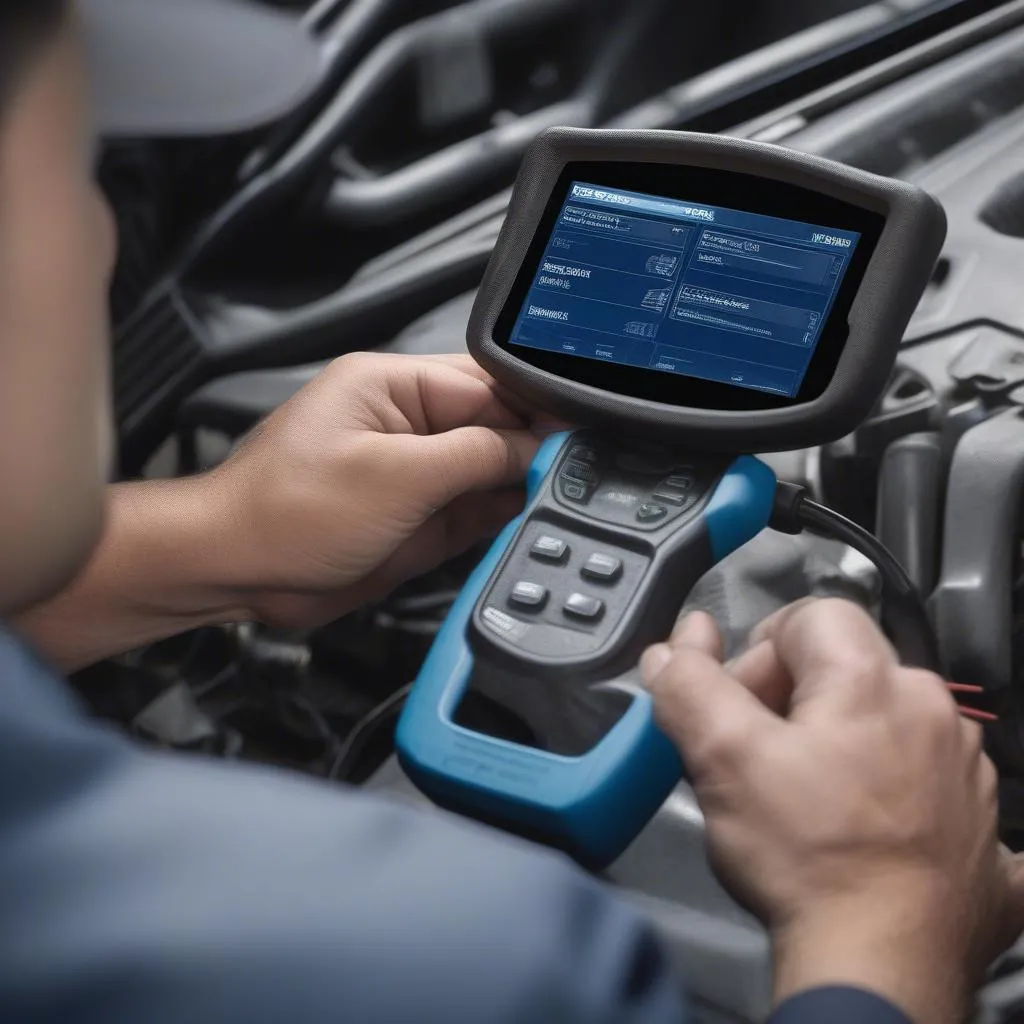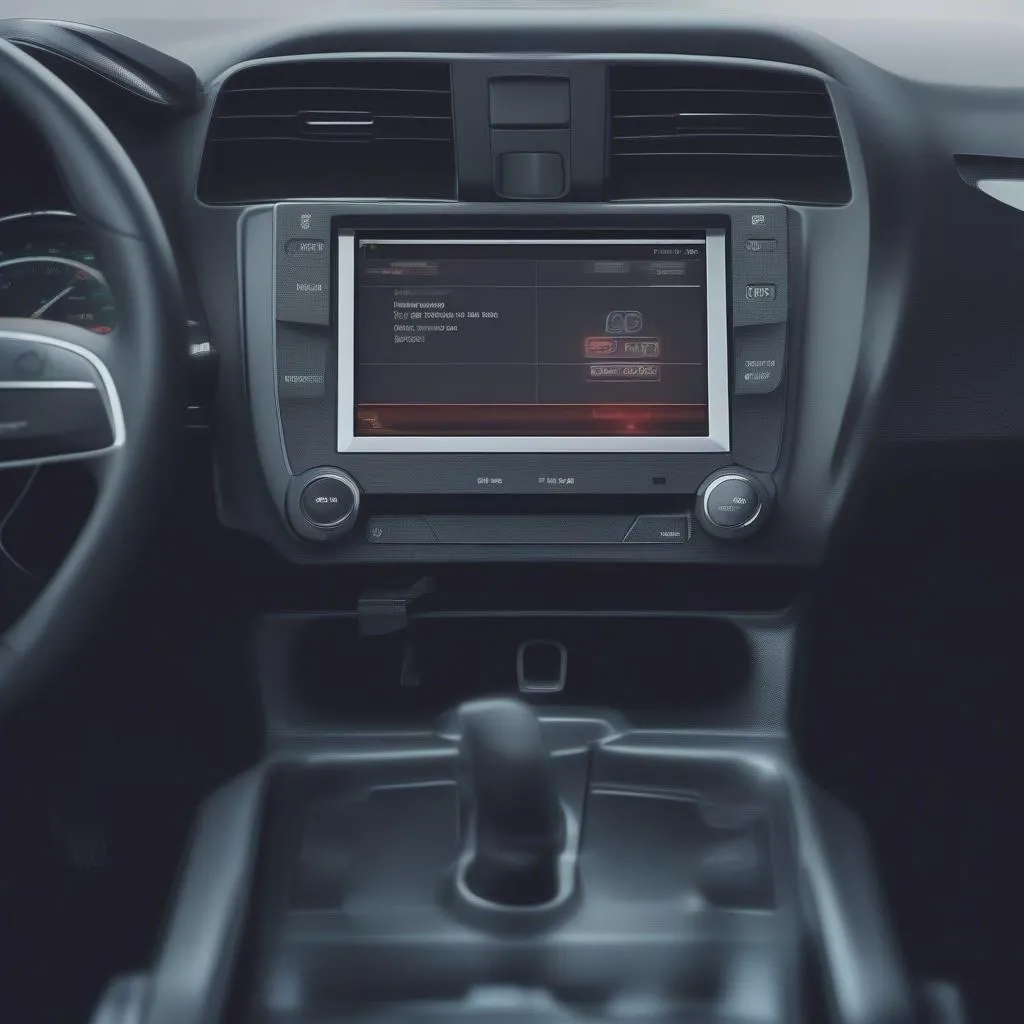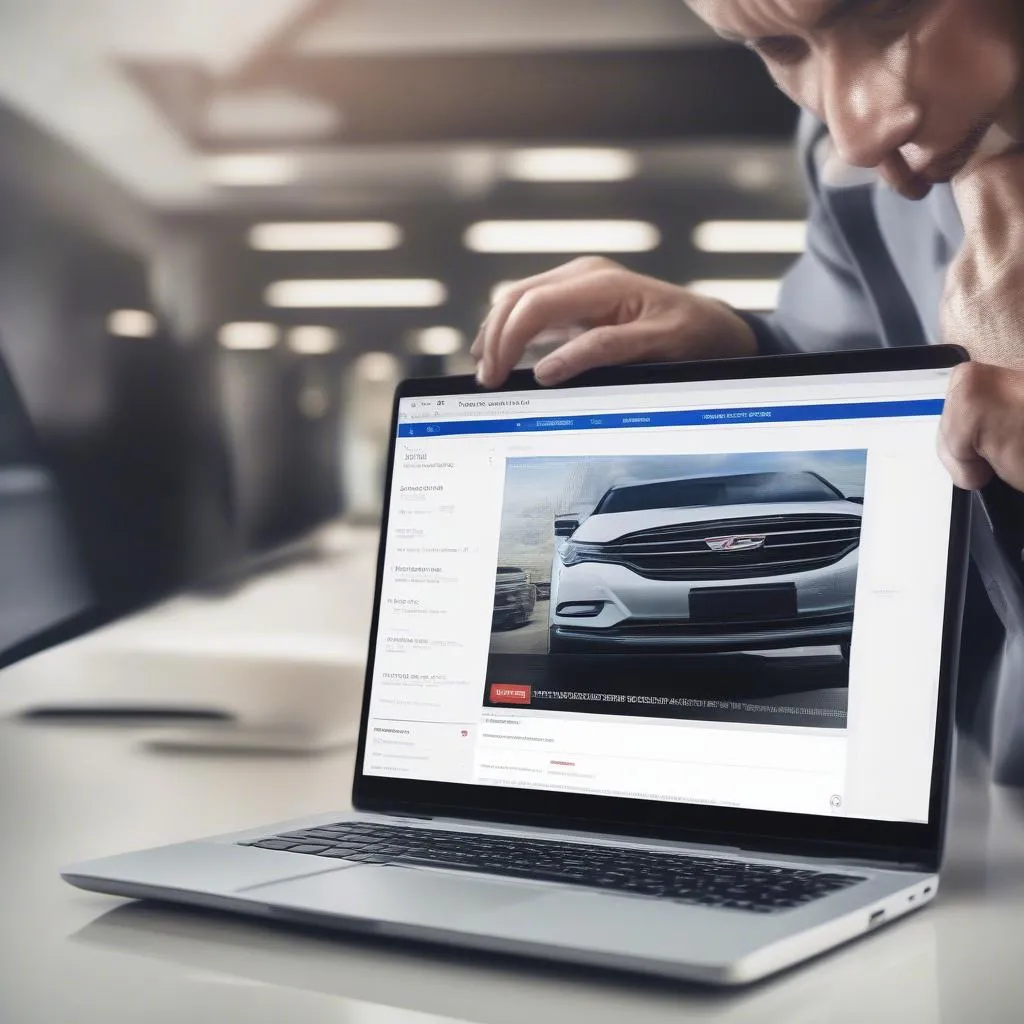Have you ever taken your car to a mechanic because the “check engine” light glared at you with the fury of a thousand suns, only to be told it’s just a loose gas cap? Frustrating, right? Now, imagine a world where you could understand your car’s whispers before they turned into screams. That’s the power of static scanning.
Understanding the Power of Static Scanning: A Mechanic’s Best Friend
In the world of automotive repair, knowledge is power. Static scanning is like having x-ray vision for your car’s electrical system. Instead of relying solely on physical inspection and guesswork, static scanning allows mechanics to:
- Identify Hidden Issues: Uncover potential problems before they cause noticeable symptoms, saving you time, money, and potential headaches down the road.
- Pinpoint Fault Codes: Decipher those cryptic error codes stored in your car’s computer, providing specific insights into the root cause of a problem.
- Streamline Repairs: By accurately diagnosing issues, static scanning eliminates unnecessary part replacements and ensures efficient repairs.
Static Scanning vs. Dynamic Scanning: What’s the Difference?
Think of it this way: static scanning takes a snapshot of your car’s systems at rest, while dynamic scanning analyzes their performance in action.
Static scanning tools are particularly useful for:
- Pre-purchase inspections: Ever bought a used car only to discover hidden problems later? Static scanning can help you make informed decisions.
- Routine maintenance: Just like regular checkups at the doctor, static scanning can help keep your car running smoothly and identify minor issues before they escalate.
- Troubleshooting electrical problems: From faulty sensors to wiring issues, static scanning is invaluable in diagnosing complex electrical systems.
Decoding the Toolkit: Essential Tools for Static Scanning
So, what are these magical tools that give mechanics this diagnostic superpower? Let’s delve into the essentials:
1. OBD-II Scanners: Your Gateway to Automotive Communication
OBD-II scanners are the workhorse of static scanning. These handheld devices plug into your car’s OBD-II port (usually located under the dashboard) and communicate with its onboard computer.
Different Types of OBD-II Scanners:
- Basic Code Readers: These affordable scanners read and clear basic fault codes, perfect for DIY enthusiasts.
- Advanced Scanners: Used by professional mechanics, these tools provide in-depth data analysis, live sensor readings, and even bi-directional control of certain vehicle systems.
Expert Insight:
“A high-quality OBD-II scanner is an investment that pays for itself,” says Dr. Thomas Müller, an automotive engineer based in Stuttgart, Germany. “It empowers car owners to understand their vehicles better and make informed decisions about repairs.”
2. Dealer-Level Scan Tools: Unlocking Manufacturer-Specific Secrets
While OBD-II scanners provide a general overview, dealer-level scan tools offer specialized access to manufacturer-specific systems and data. These tools are particularly crucial for:
- Programming and coding: From key fobs to engine control modules, dealer-level tools allow mechanics to program and configure vehicle systems.
- Advanced diagnostics: These tools can perform complex tests and calibrations specific to certain makes and models.
For instance, imagine you’re driving a European luxury car like a BMW or Mercedes-Benz on the Autobahn in Germany. These vehicles often require specialized scan tools that can communicate with their intricate electronic systems.
3. Multimeters: The Electrician’s Best Friend
Multimeters might seem like simple tools, but they’re essential for testing electrical components like:
- Battery voltage
- Charging system output
- Wiring continuity
Pro Tip: Learning to use a multimeter effectively can save you countless trips to the mechanic for simple electrical issues.
4. Wiring Diagrams and Technical Manuals: Your Roadmap to Automotive Complexity
Navigating the labyrinthine world of automotive wiring harnesses and electronic control units can be daunting. That’s where wiring diagrams and technical manuals come in handy. These resources provide:
- Detailed schematics: Understand how your car’s electrical system is interconnected.
- Component locations: Quickly identify the location of specific sensors, modules, and wiring harnesses.
- Troubleshooting guides: Follow step-by-step instructions to diagnose and repair common electrical problems.
Imagine you’re a mechanic in bustling city like Los Angeles, California, trying to diagnose a complex electrical issue on a classic American muscle car. Having access to accurate wiring diagrams and technical manuals can be the difference between a swift repair and hours of frustrating troubleshooting.
FAQs: Unraveling the Mysteries of Static Scanning
1. Can I perform static scanning myself?
Absolutely! Basic OBD-II scanners are user-friendly and widely available. However, for complex diagnostics and programming, it’s best to consult a qualified mechanic.
2. How often should I get my car static scanned?
Consider static scanning as part of your regular maintenance routine, ideally at least once a year or whenever you experience unusual vehicle behavior.
3. What if my check engine light is flashing?
A flashing check engine light usually indicates a serious problem that requires immediate attention. Get your car diagnosed by a mechanic as soon as possible.
Need Help with Your Car’s Diagnostics? We’re Here to Help!
If you’re feeling overwhelmed by the world of automotive diagnostics, don’t worry, you’re not alone! At Diag XCar, we’re passionate about empowering car owners and mechanics with the knowledge and tools they need to keep vehicles running smoothly.
Contact us on WhatsApp at +84767531508 for expert support with:
- Diagnostic tool setup and usage
- Troubleshooting complex automotive issues
- Finding reliable automotive repair shops in your area
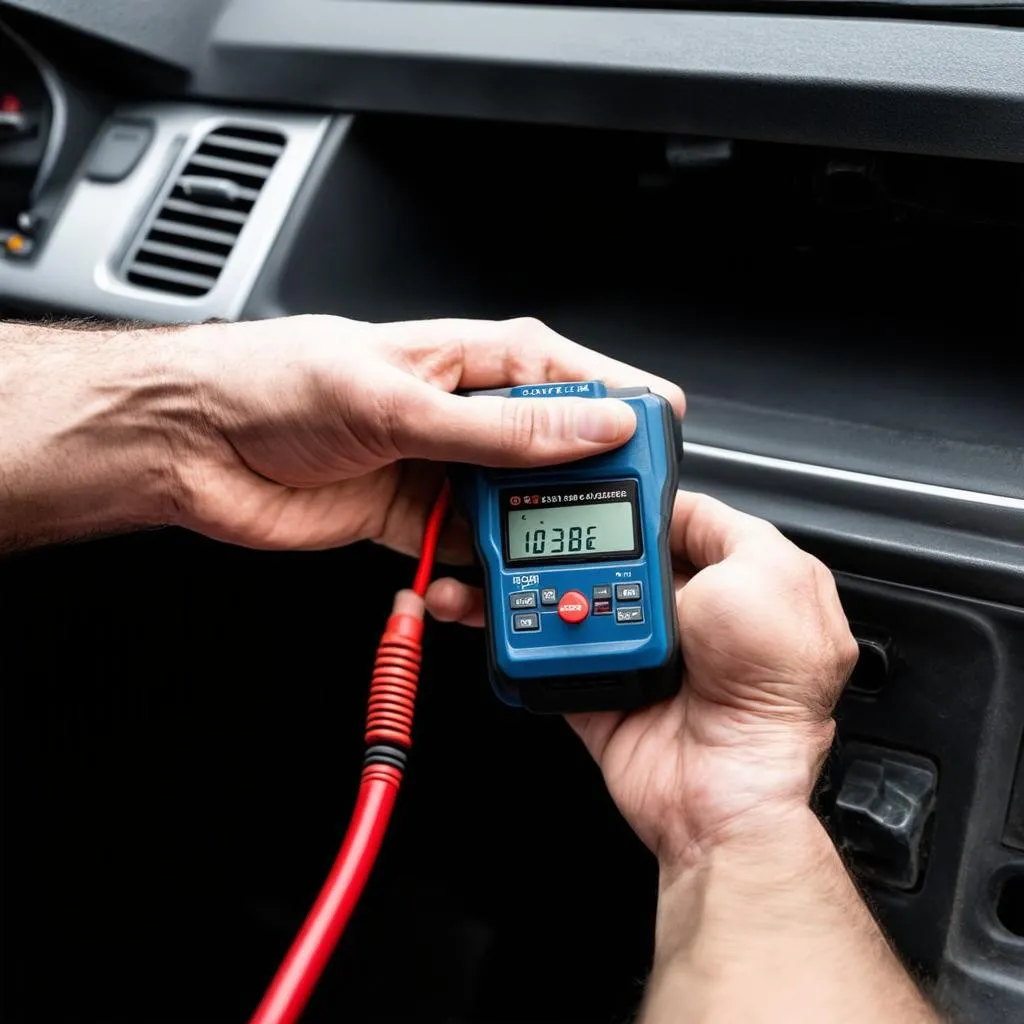 OBD2 Scanner
OBD2 Scanner
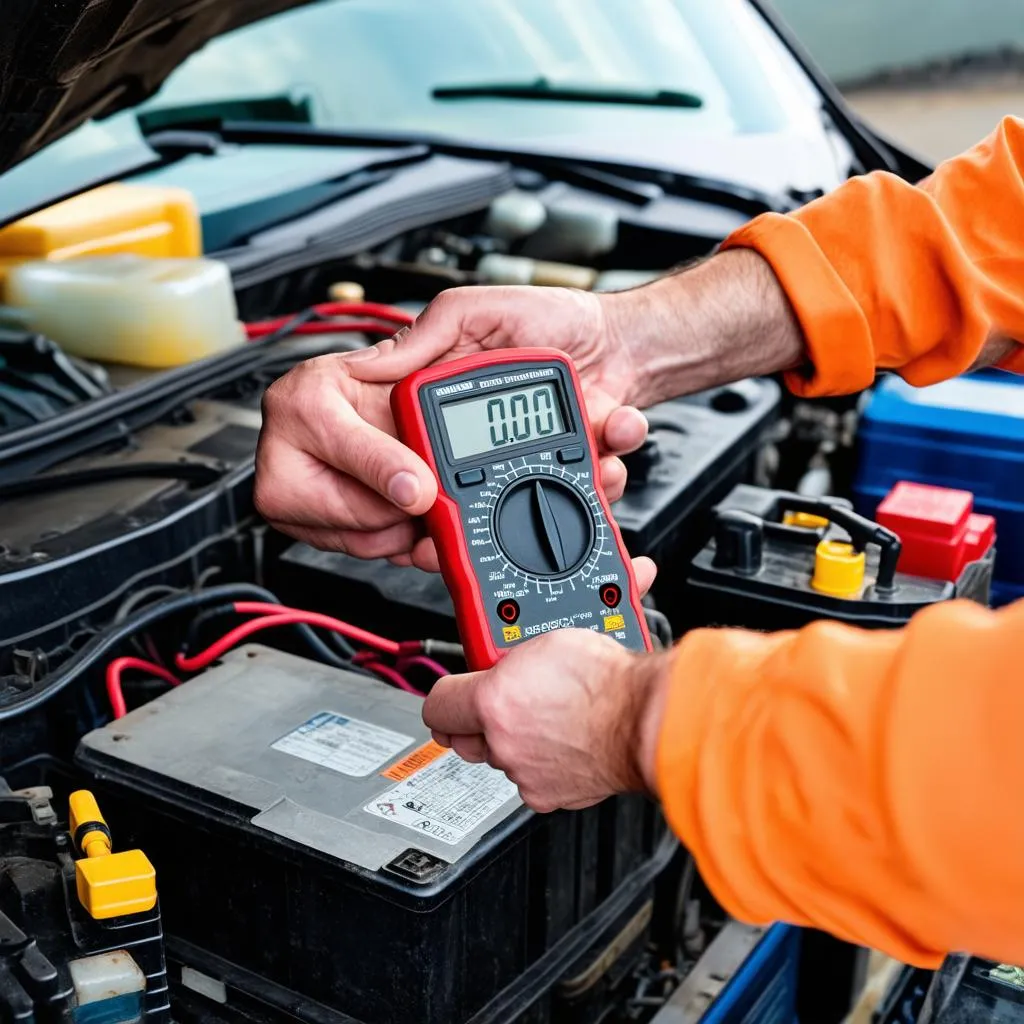 Digital Multimeter
Digital Multimeter
Our team of experienced automotive technicians is available 24/7 to answer your questions and provide guidance.
Don’t let car troubles drive you crazy! Contact us today and let’s get your car back on the road.
